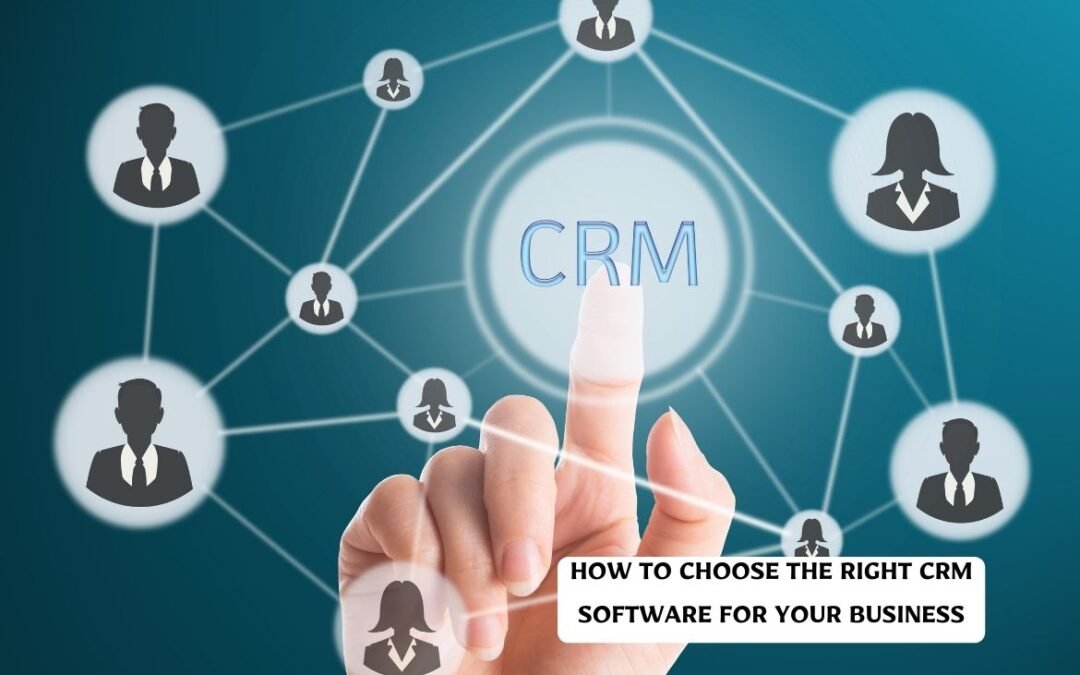Choosing the correct client Relationship Management (CRM) software is critical for any company trying to enhance client interactions and streamline processes. With so many alternatives available, it might be difficult to find the best match. Here are a few basic steps to help you select the best CRM software for your company.

Understand Your Business Needs
Before you begin looking into CRM tools, determine what your business requires.
- What problems are you trying to solve?
- What features are essential for your business?
- How many users will need access to the CRM?
- What is your budget?
You’ll be able to reduce your alternatives if you know exactly what you need.
Look for User-Friendly Software
It should be simple to utilize your CRM software. Your team may find it difficult to embrace the system if it is overly complicated. Look for a CRM that has an easy-to-use UI and navigation. Use the free trials that many CRM companies offer to see whether the program is easy to use.
Check for Essential Features
Ensure the CRM software includes the essential features your business needs. Common features to look for include:
- Contact management
- Sales tracking
- Email integration
- Reporting and analytics
- Mobile access
Make a list of must-have features and use it to evaluate different CRM options.
Consider Integration Capabilities
Your CRM should work easily with other tools you already have, such as email marketing software, accounting systems, and project management tools. This will help to streamline your procedures and eliminate data silos.
Evaluate Customization Options
Every business is unique. Thus, your CRM should be adaptable to your specific requirements. Determine whether the CRM allows you to alter fields, workflows, and reports. This guarantees that the software can adapt to your company’s processes.
Think About Scalability
As your company grows, your CRM requirements may evolve. CRMs should be able to grow with your company, providing new features and user capacity as needed. As a result, you won’t have to switch systems later on.
Review Security Measures
Your CRM will hold important client information; thus, security is critical. Ensure that the CRM supplier has strong security measures in place, such as data encryption, daily backups, and compliance with data protection requirements.
Check Customer Support
Good customer assistance is vital, especially if you’re new to CRM. Look for companies that give complete help, such as tutorials, live chat, and phone support. This will allow you to rapidly handle any difficulties and make the most of your CRM.
Read Reviews and Get Recommendations
Reading reviews and seeking suggestions from other businesses might provide useful information. Look for reviews on independent websites and talk to other business owners about their experiences with various CRM systems.
Compare Pricing Plans
CRM software comes in a variety of costs. Compare pricing plans to get one that is within your budget. Keep an eye out for hidden prices, such as setup fees, additional user licenses, or premium feature charges. Before making a decision, ensure that you fully grasp the entire cost of ownership.
Conclusion
Choosing the appropriate CRM software is critical for building stronger customer interactions and increasing corporate productivity. You may choose the best CRM for your organization by analyzing your requirements, looking for user-friendly and feature-rich software, considering integration and customization options, and assessing scalability, security, support, and cost. Take your time, conduct research, and select a CRM that will help your business thrive.


Recent Comments